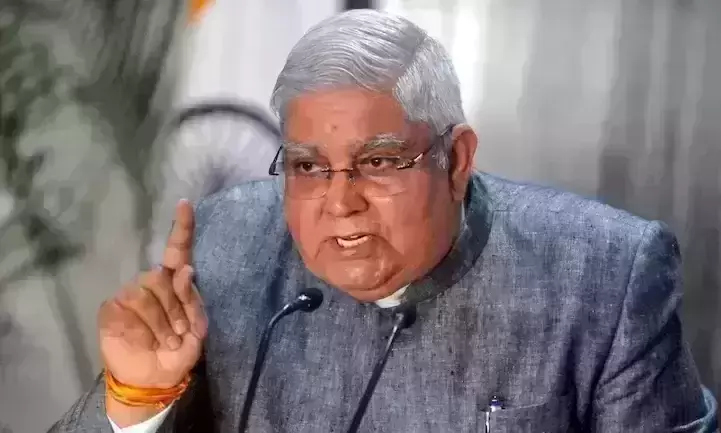
Dhankhar's remarks against SC: lawyer to move criminal contempt
text_fieldsNew Delhi: Over the alleged problematic remarks by Vice President Jagdeep Dhankar against the Supreme Court, an advocate from Kerala sought consent from the Attorney General to initiate criminal contempt. The advocate alleged that Dhankhar’s public statements amounted to a direct attack on the authority and dignity of the Supreme Court of India, Deccan Herald reported.
The advocate, Subhash Theekkadan, also stated that the VP’s problematic statements clearly amounted to scandalising and lowering the authority of the Supreme Court of India. They questioned the legitimacy and powers of the Supreme Court conferred under Article 142 of the Constitution and are thus likely to interfere with or obstruct the administration of justice, Thekkedan alleged in a letter he wrote.
He said that such statements coming from a high constitutional functionary like the Vice President have far-reaching and damaging effects on public confidence in the judiciary. They undermine the dignity, authority, and credibility of the court, and if left unchecked, they might embolden others to follow suit. This will erode the foundational principles of the rule of law and separation of powers enshrined in the Constitution, he said.
Dhankhar was making comments on the top court’s judgement on April 8, 2025, in the case of the State of Tamil Nadu vs. the Governor of Tamil Nadu and Another. In his address in Rajya Sabha, VP Dhankhar said, “We cannot have a situation where you direct the President of India, and on what basis? The only right you have under the Constitution is to interpret the Constitution under Article 145(3). There it has to be five judges or more. Article 142 has become a nuclear missile against democratic forces, available to the judiciary 24x7,” Deccan Herald quoted the Vice President.
“There is a directive to the President by a recent judgment. Where are we heading? What is happening in the country? We never bargained for democracy. The President is called upon to decide in a time-bound manner, and if not, it becomes law. So we have judges who will legislate, who will perform executive functions, who will act as a super-Parliament, and absolutely have no accountability because the law of the land does not apply to them.” Dhankhar said


















